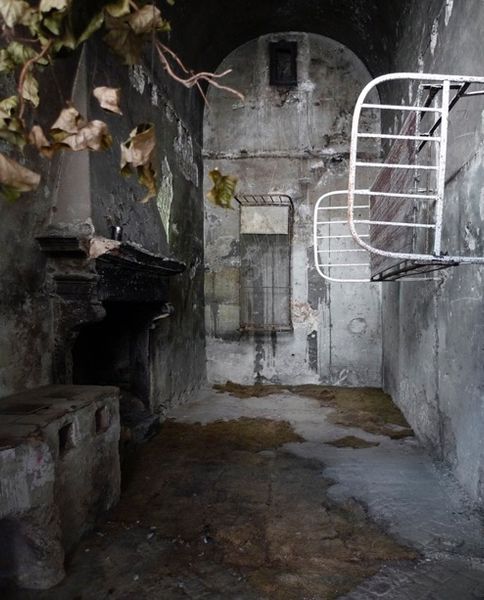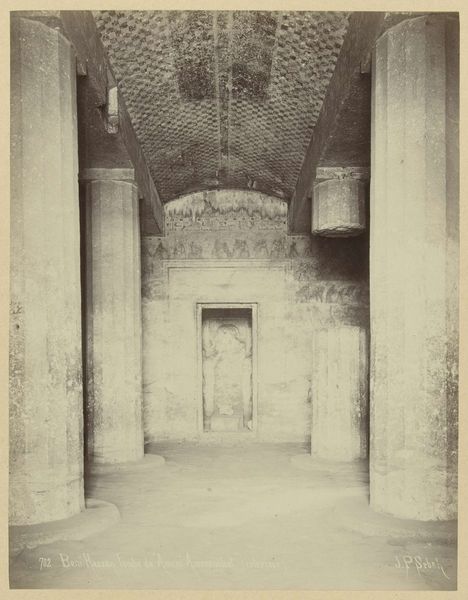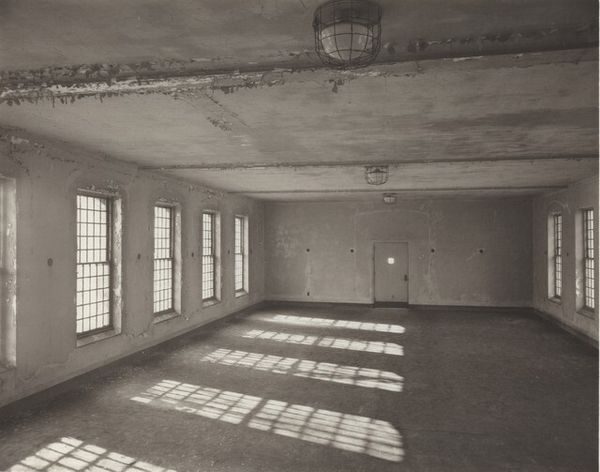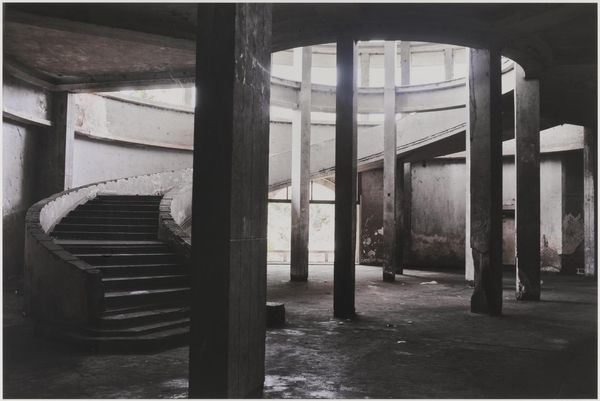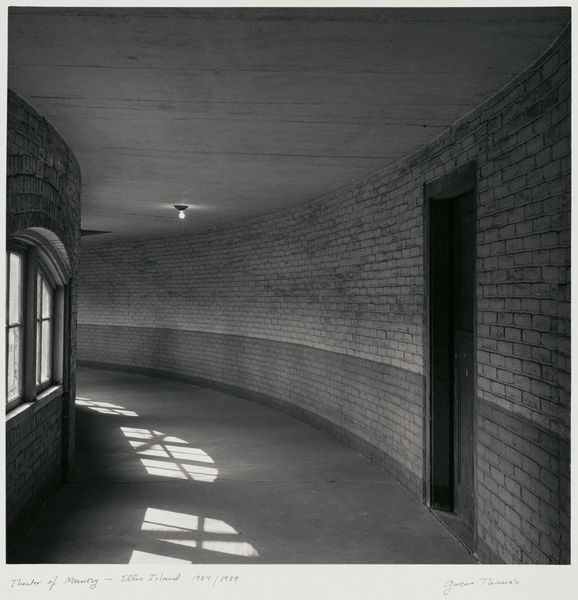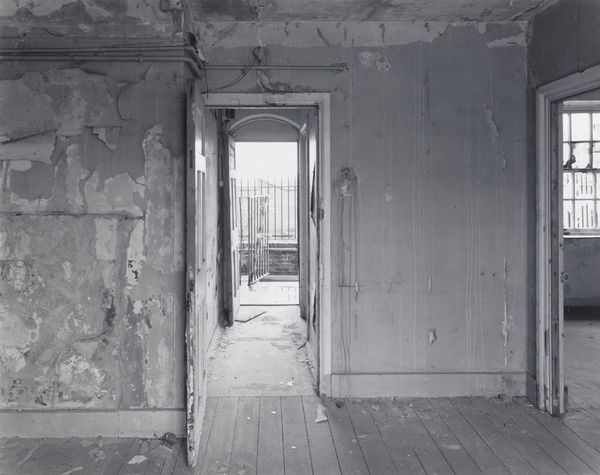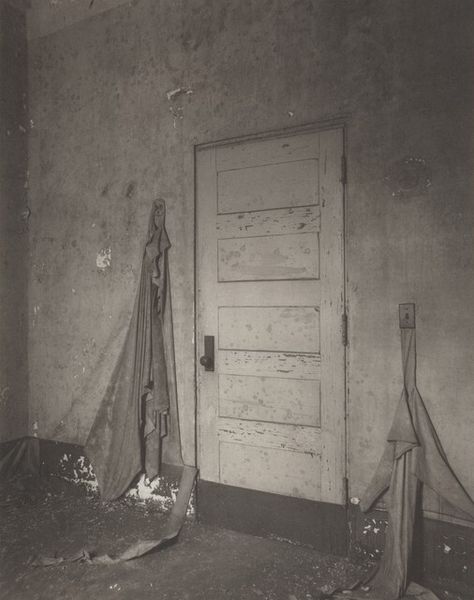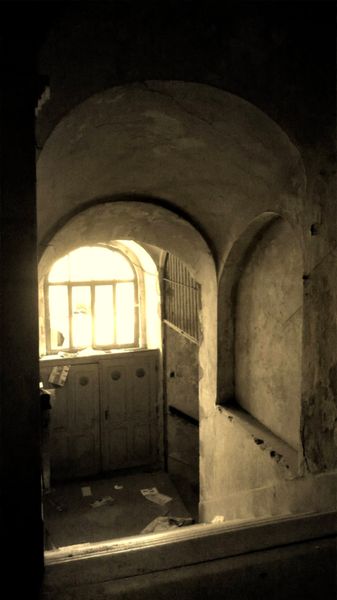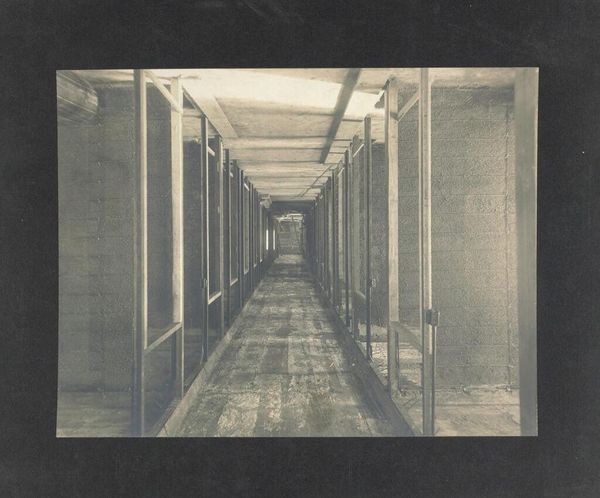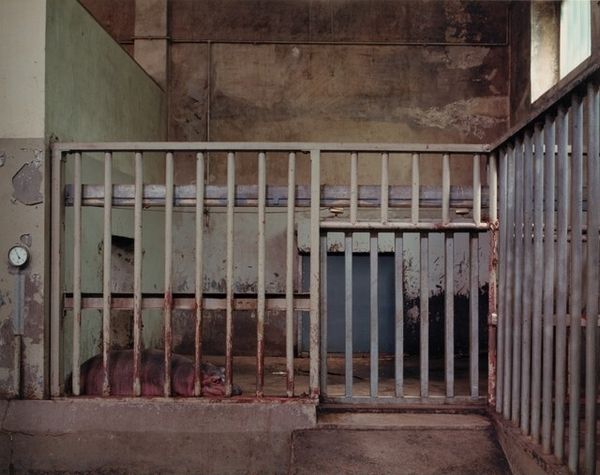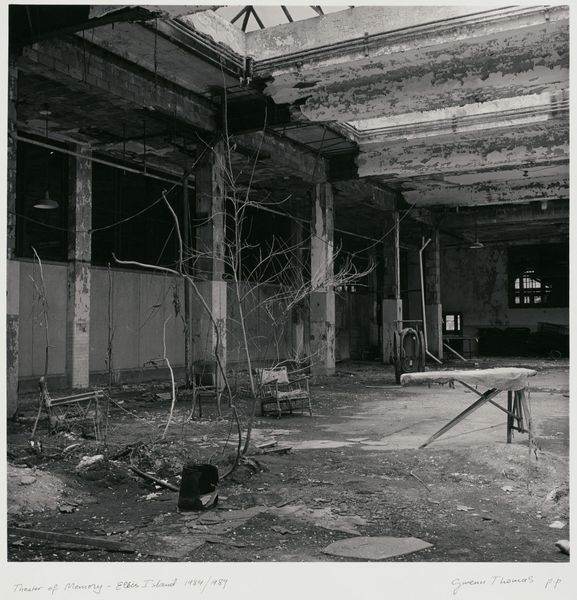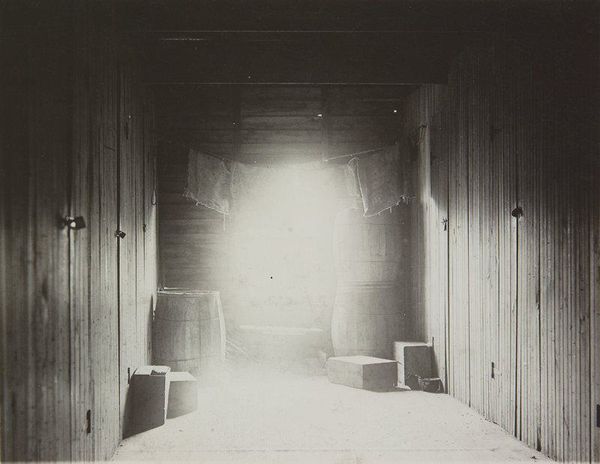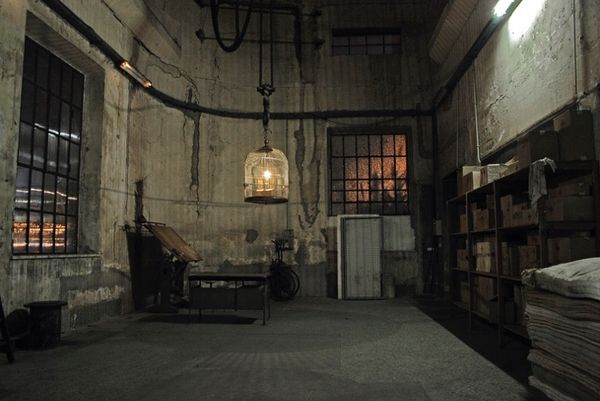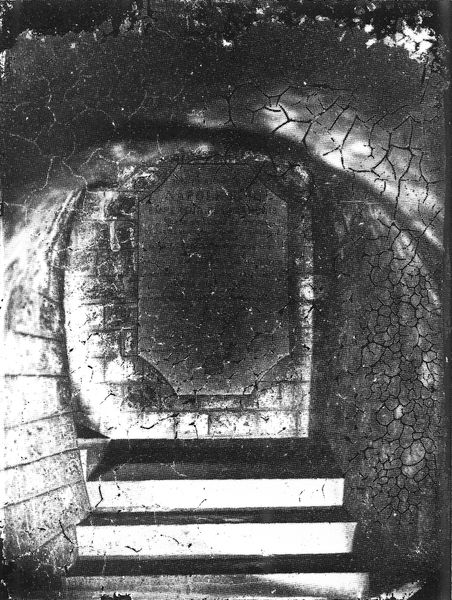
photography, collotype, architecture
#
sculpture
#
landscape
#
historic architecture
#
photography
#
collotype
#
geometric
#
architecture
#
historical building
Dimensions: image: 24.2 × 19 cm (9 1/2 × 7 1/2 in.) sheet: 35.3 × 35 cm (13 7/8 × 13 3/4 in.)
Copyright: National Gallery of Art: CC0 1.0
Curator: Madoka Takagi’s 1988 collotype photograph, simply titled "Ellis Island," depicts a decaying corridor within the immigration station. Editor: It's incredibly evocative. The monochromatic palette and the texture... it creates this palpable sense of abandonment, doesn't it? Like walking through a forgotten dream. The light filtering through those cracked windows—haunting. Curator: Absolutely. Takagi is known for her use of historical sites as powerful metaphors. The subject of Ellis Island carries immense social weight. It’s a monument to immigration, and, in this state, it reflects the complex and often harsh realities of the immigrant experience in the United States. The building’s slow decay since its closure can also be seen as society’s own forgetting. Editor: The medium itself seems so appropriate too. The collotype, a photographic printing process using gelatin, gives this incredible depth. Look at how the material degradation—the flaking paint and rusting metal—becomes the subject. I’m thinking about the labor that built this place and what’s become of it. Curator: Exactly. The peeling walls speak volumes about the people who passed through here. The building itself served as a filter, dictating lives. How are these processes further memorialized through display? Editor: It makes you wonder about the conditions of their arrival, their journeys. The light entering almost symbolizes hope, juxtaposed against the structure's visible decline. The materials embody the fragility of the immigrant dream, made by those immigrants using imported tools. It’s a story etched into the very architecture and amplified through Takagi’s process. Curator: Yes, the history is quite loaded. Ellis Island remains a contentious location, fraught with the personal tragedies and triumphs that helped shape America's demographics, political agendas, and evolving attitude toward newcomers. It forces us to grapple with these complex histories. Editor: Seeing the image today, considering the cyclical patterns of immigration debates… It's powerful how material choices echo those ongoing struggles. It invites us to think critically about those patterns and who constructs the visual and political narratives surrounding Ellis Island itself. Curator: It’s a potent reminder of our shared past. It’s easy to romanticize history, but the image reminds us of real stories. Editor: Yes. An unsettling, crucial image.
Comments
No comments
Be the first to comment and join the conversation on the ultimate creative platform.
